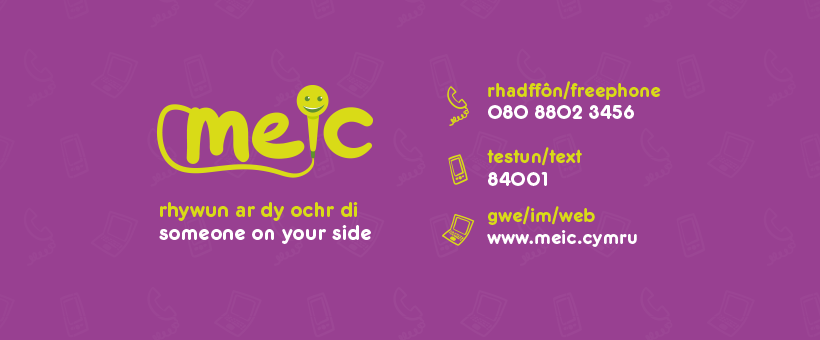What’s All This Talk About Consent?

Meic is running a weeklong campaign looking at Consent*. We’ll be sharing our specially created videos, looking in depth at the subject in our articles and sharing information and links.
*Warning – Due to the nature of the subject some of the content in this article may not be suitable for some of our younger readers.
(I ddarllen yr erthygl yma yn Gymraeg cliciwch yma)
Sexual relationships can be enjoyable and fun when it’s between two consenting adults over the age of 16. However, when sexual activities happen without the consent of one partner this is not only illegal but also it can have devastating effect on the person who hasn’t given consent. Want to know more? Read on.
What is “Consent”?
Sexual consent is when a person says it’s ok for another person to engage in sexual activity with them. If consent is not given by one of them and the other person carries on with unwanted sexual activity, then this would be considered as sexual assault in the eyes of the law. If this activity includes sex (vaginal, anal or oral sex) this would be classed as rape. Everybody can be a victim of sexual assault regardless of sex, sexual orientation, gender identity, and background.
Some people may talk about blurred lines or grey areas when it comes to consent. We think this video by Blue Seat Studios, ‘Tea and Consent‘, really makes it clear what consent is in a funny and lighthearted way.
When can consent not be given?
Once you have an understanding of the basics then consent is quite clear. The legal definition of consent is “a person consents if he/she agrees by choice, and has the freedom and capacity to make that choice”. Lets break down the ‘freedom’ and ‘capacity’ bit.
Freedom is central to consent and it is quite clear. If someone is not free to make a choice about whether they want to have sex or not, or they are threatened to make a choice, then they haven’t given consent.
Capacity is less clear. This looks at someone’s state of mind and ability to make a decision. If you have mental health issues, are not fully conscious or under the influence of drink or drugs, then this can affect your state of mind. This means that you don’t have ‘capacity’ so can’t legally give consent to have sex.
Here are some examples:
- If someone is drunk and semi-conscious, they can’t give consent to have sex or engage in sexual activity
- Consent can not be given if someone is asleep or unconscious. This is still true even if they agreed to sex or sexual activity earlier.
- If someone is fearful and has been threatened into having sex or be involved in sexual activity, they have not given consent
For more examples and lots of useful information check out the myths and facts about consent page on the Brook sexual health website.
Why is it important to understand consent?
It’s really important for everyone to have a good understanding about consent. This leads to healthy relationships and safe, enjoyable sex for consenting young people.
The consequences of not understanding consent can be really serious. Sexual assault and rape can have a massive effect on both of you. The person who didn’t give consent will be feeling distressed and violated, and the person who didn’t get consent could face a criminal record, a fine, probation order or a stay in prison. They could even be registered as a sex offender.
If you’re unsure how your partner feels about it then talk to them. Find out what they are comfortable with. Get an enthusiastic “yes” before any sexual activity and try not to put them under any pressure. Respect is important in all relationships, and it’s no different with sex. Be respectful of your partner’s decisions and feelings and you won’t go far wrong!
It is important to be aware that if you are under 16 you are not legally able to give consent. You are still classed as a child by the legal system. Some young people do choose to have sex before they are legally old enough. This is still classed as breaking the law. The police may choose to take no action in this situation, however there is no guarantee of this. If either partner is under 13 the police would always take action.
Check out our other articles for Sexual Health Week – Consent:
- Consent Week: No Means No (Life is Not a Fairytale video)
- Consent Week: Inappropriate Song Lyrics
- Consent Week: Life Is Not A Fairy Tale
- Consent: How Do People Get It So Wrong?
Need more information?
If you are unsure about consent and want to discuss this then get in touch with us here at Meic. We are here everyday 8am-midnight to offer support with further advice and information. If you feel that you may have been a victim of sexual assault we would always encourage you to speak to a trusted adult such as a parent, doctor, teacher or social worker who may encourage and support you to report this to the police.
Meic is the information, advice and advocacy helpline for children and young people across Wales. Contact us by phone, text or online chat – it’s free, confidential and anonymous.























